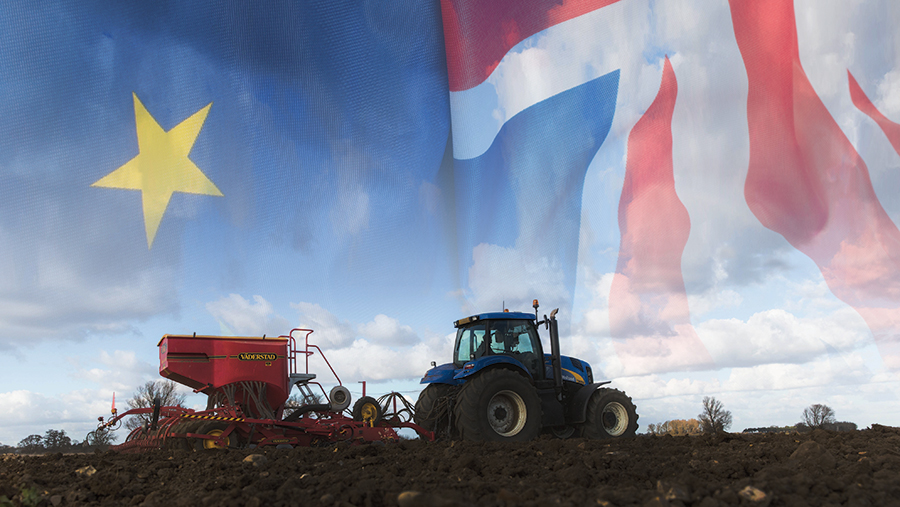No-deal Brexit would make British food more competitive
 © Tim Scrivener / ING Image
© Tim Scrivener / ING Image If the UK leaves the EU without a trade arrangement, British produce would gain a significant competitive advantage over imported products, according to a new study.
World Trade Organization tariffs on imported produce from the EU would increase a family’s annual shop price by an average of £132 a year, an increase of 4%, according to a study by the financial website, NimbleFins.
See also: Opinion: Brexit has made us a laughing stock around the world
Tariffs of up to 35% on EU imported products combined with a likely weakening of the pound in the event of a no-deal scenario would place a higher price tag on imported meat, dairy and vegetables, while making their domestic counterparts more competitive.
An average UK shopper who currently spends £7.90 on dairy, £12.40 on meat and £13.30 on fruit and vegetables would face additional costs of £2.37, £3.72 and £3.00 respectively if WTO tariffs were introduced, before any currency weakening enters the equation.
The UK currently imports 30% of its total food from the EU, and analysts believe the majority of higher tariffs would likely be passed on to consumers.
Government sources have repeatedly stated that Brexit must not be associated with an increase in consumer food prices, stoking fears that ministers are preparing behind-the-scenes trade deals to import low-quality, cheap food from the Americas and Oceania.
Michael Gove and Liam Fox have repeatedly denied that the UK would allow lower-quality food such as chlorine-washed chicken and hormone-treated beef into the country after Brexit.
However, it was revealed in December that a recent trade mission by David Davis and Owen Paterson to the US was financed by American organisations actively seeking to weaken standards in order to access UK markets.
